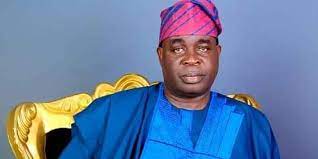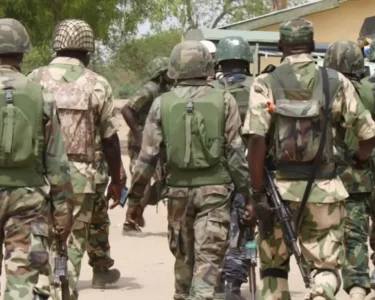This write-up is about leadership as experienced in Kwara State between 1999 and now. Within a space of twenty-six years, we had conducted seven national elections in the State.
I think it is believed by many people that seven is a number of perfection.
But how come that even the product of the seventh election is now the climax of our bad governance thus far?
But then, if we emerged from military dictatorship in 1999 and democracy was not only new and strange to those that had lived their lives under a long period of military dictatorship; it is time we examine our democratic journey thus far.
It is this examination that will enable us to know whether we are making progress or not.
It is also such that will show us the future direction for alternative actions for hope that will create a new reality.
If our democratic journey is not examined, the tendency is that we shall take for development, this our macabre dance on the same spot come 2027, when it will be 28 years of democracy.
I believe that 28 years may be too short in the life of a State whose terminal end is not in contemplation or view.
But that is when we believe in gradualist’s approach to development. If a deep analysis even shows decline rather than progress, there is the need for strong warning.
This write up is that warning. And it is good for all times, especially for those that believe that culture and developments are porous.
They flow from contact relationships from society to society and from country to country.
We need to know that having come across great civilizations of the world for centuries, many pitfalls could be avoided as we transcend the threshold of development in all areas of our life.
This is because we have had the privilege of learning from the mistakes and successes of others.
It is not an excuse that we are to be today, where Britain was a century ago. After all, we have been exposed to British civilization more than a century ago.
Why can we not start from where Britain was in 1960, the year of our independence and progressively move ahead of our colonial master. Countries like USA, Canada, New Zealand, India, Malaysia and Singapore among others were once members of British Empire.
Some of these countries have surpassed their colonial masters in many indices of developments; while others are racing for development in all areas of their endeavor.
If we are not retrogressing, no qualm, but our democratic regression that causes underdevelopment is a big worry.
Now that our uninterrupted democracy is on its twenty-seventh year, and all we have is change of leaders without progress, it should be a thing of concern.
We have a poor understanding of developmental issues in Kwara.
To understand whether we are developing or under developing, we are to examine what successive elections have produced in terms of socio/economic developments represented by human capital development index, innovation, employment or joblessness, etc.
We also need to examine the output of our elections in terms of indices of good governance like transparency, accountability, inclusiveness, adherence to the rule of law, etc.
All these are the cornerstones of democracy rather than periodic elections that at the end of the day signify nothing.
We have reduced democracy to periodic elections in Kwara State.
After each election circle, leaders are not often interrogated about quality and quantities of development in terms of opportunities the elected officials do have to improve the Kwara communities.
I am of the considered opinion that the significance of democracy is not in queuing up to vote, it should be about the outcome of elections not in terms of those that win elections, but about the out-put of those that have won.
If in 1999, our statutory allocation was less than one billion naira, but it has risen progressively from that figure to over thirteen billion Naira monthly today and the poverty situation of our rural and urban poor is even worse than that of 1999, then who has our elections benefitted?
If the least of our sixteen Local government councils used to collect from the federation account the sum that was less than six million Naira in 1999, but today collects more than four hundred million Naira monthly and the conditions of the rural poor and the environment is now worse than that of 1999, what is the meaning of periodic charade we call democratic elections?
If the internally generated revenue of government rose from 600 Naira monthly in 1999, to over four billion naira, monthly today; what is the meaning of the huge resources to the life of the people of Kwara State?
If chief executives of both the state and the local government are richer and larger than life as a result of the outcome of our elections, then the outcome of our democracy ought to be interrogated.
Over 26 years after the first of the seven elections, basic problems of food security, quality education, health institution that is healthy, provision of fresh water for the citizens and our urban and rural roads remain largely unfixed. Is it not now better that we query the products of our democracy and periodic elections?
Let me state that democracy is more than periodic elections. What make democracy attractive and its persuasive content is good governance.
Perhaps it is called the people’s government as a result of the mass participation content.
If democracy is a big pot of soup to which all contribute, the expected good taste should go round. A situation that provides for a fat elected officials and lean electorate is not democratic.
It is rather a democratic dictatorship.
Democratic dictatorship is a democracy of false claims, one that wears a garment of disguise and pretense.
In such a deceptive “democracy” you can see political parties but they are fiefdom of godfathers, there will be campaigns but they are sterile and empty.
There will also be electoral umpires, pooling centres, pooling agents, electoral officers, ballot papers, ballot boxes and voters and indeed the adjudicating judiciary.
The most curious thing is that all these had not guarantee democracy as a government that should protect the interests of the greatest majority of the people.
The outcome as far as I know of Kwara, is this perennial democratic dictatorship.
We need to now examine the evidence of this perennial democratic dictatorship.
A government elected by the people should be truly representative of the people.
Apart from 1999-2003 National Assembly members of the like of Senators Sulaiman Ajadi, Salman Isiaq and Zuruq which of our National Assembly members since 2003 till date did not rate loyalty to their leaders over and above the interests of the people they claim to represent?
Furthermore, the Kwara State Assembly of the 4th Assembly was the most outstanding of all the Assemblies we have ever had in this fourth republic.
That was the Assembly of Rt Honorable Speaker, Benjamin Yissa Ezekiel.
It was the only Assembly that was not only able to make laws in the interests of the people that elected them, but in most cases was able to dare the power of the then Chief Executive Governor of Kwara State, Mohammed Lawal.
State Assemblies thereafter were often tied to the apron strings of the Governors or the party leaders.
Where therefore is democratic representation that sustains democracy?
A major pillar of democracy is transparency in governance.
The elected, especially the Chairmen of Local Councils and the Governors ought to be transparent in the way and manner governance is handled.
Since the beginning of the fourth republic, did any governor create a durable and reliable channel of consultation with the people especially on major policy, strategic and operational issues of government?
After the election the governors often treat the people of Kwara with disdain and the understanding of the ways and methods of operation of government is left to the conjecture of the electorate.
To the elected, leadership is about showmanship of latest cars, overseas trips that bring no value to the governed, programs of mere aesthetic values.
The electorate becomes mere speculators and beggars to those elected to run errands as politics ought to be for service.
A democrat owes the electorate the duty of accountability. This is trite as the money and facilities of governance belong to the people to whom the elected must account.
We hear of monthly allocation, the internally sourced revenue and borrowings of government.
The most generous of the governors may tell us the amount of money mobilized by government, not how it is spent and who are involved in the spending.
Billions of naira roll in and out, the situation of the people remain the same for more than 26 years.
As if people do not matter, the Freedom of Information Act (FOA) passed by the National Assembly which should enjoy instant implementation without more, must be altered to allow only the governor to release to the inquirers any information from all agencies of government.
If one is looking for evidence of looting, which one do we still need than this refusal to implement this instrument of accountability?
A democracy that is not accountable whether on money earned and programs executed, is antithetical to the principle of democracy.
It is an evidence of the perennial democratic dictatorship.
Inclusivity is one of the ethos of democracy.
If a government is not inclusive, then it is a government of the family, or one man’s whim and caprices.
This type of government is totalitarian.
It is this type of government that has all political appointments in the pocket of the party leaders and the governor.
It is this type of government that is forced to appoint Commissioners as a result of constitutional requirements rather than utilitarian needs for the appointees.
Such authoritarian regimes will appoint the amenable over competence, cronies over merit etc.
Non-inclusivity is a royal way to totalitarianism and it is offensive to democracy.
Another vital element of democracy is responsiveness to the needs of the people.
Democracy, the outcome of elections loses its meaning when the elected are not responsive to the needs of the people.
People voted so that the elected will respond promptly to the needs of the electorate.
When an elected governor becomes evasive, when he makes himself unavailable to communities at the period of needs, when religious organizations find it difficult to connect with their representatives, when party members call or send messages that are not returned: then democracy has lost its luster and essence.
An elected that alienates himself from the people is wearing the badge of dictatorship. This attribute can be seen in virtually all our governors of the fourth republic Kwara.
This type of leadership informs my opinion that leadership of Kwara merely changes among individuals both they are all of the same character.
The last evidence of non existence of democracy and development in Kwara that I wish to discuss is observance of the rule of law.
Democracy is based on the rule of law. Dictatorship is a product of the rule of the thumb.
If our democracy protects corruption, mediocrity, nepotism, inequality and injustice; then it glorifies dictatorship. It is therefore a government of anything goes.
What we witness consistently since 1999 are governments of strongmen that have no law except their own interests.
But before I close this discourse, I need to ask: how did we get here? Why has every election tipped us so low?
In this, I find the electorate of Kwara culpable. If we had gone to polls seven times and all we produce is a fact that our yesterday is better than today, then we are responsible for our choices.
It is inexcusable that politicians are deceitful, wicked and brutal. If they are like Roman Emperors and like slave drivers, they do it with the people’s acquiescence.
If majority of the masses wallow in abject poverty and would take pea nut to make important electoral decisions to vote for the unsuitable, what are the roles of well-exposed and well-read people that are above poverty line?
Majority of such people are politically apathetic or apologetic. It has come to a time that if we desire good governance, we should in our neighborhood turn to conversers for parties and candidates that can make a difference.
Institution of perennial democratic dictatorship is our choice.
The major problem are not politicians that cheat and destroy this state, but rather this people that ought to talk and act but take “refuge in the act of passivity or cold indifference”.
Akogun Iyiola Oyedepo is a lawyer and chieftain of the All Progressives Congress (APC) in Kwara State.




